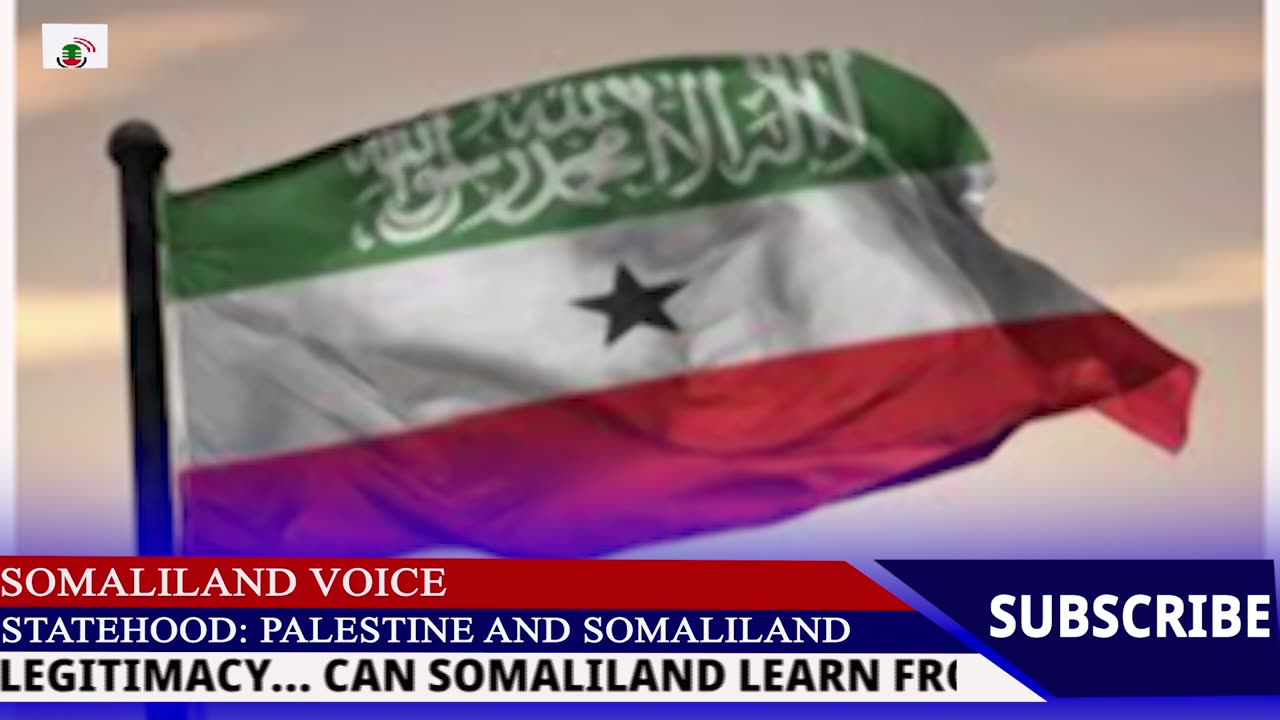Premium Only Content

PALESTINE’S RECOGNITION & THE QUESTION OF SOMALILAND
Palestine’s Recognition and the Question of Somaliland: A Geopolitical Parallel
The recognition of Palestine as a state by more than 140 countries around the world has once again proven that statehood is not only about control of territory, but also about the political weight of international legitimacy. Despite not having full sovereignty over its land and still being under Israeli occupation in many areas, Palestine has been accepted as a state by the United Nations General Assembly and granted observer status, giving it a platform in international diplomacy. This recognition has not ended the conflict, but it has strengthened Palestine’s identity and visibility on the world stage.
Somaliland, on the other hand, finds itself in a strikingly different situation. Since 1991, Somaliland has operated as a de facto independent nation with its own government, military, currency, and relative stability in a region often marked by conflict. It has conducted democratic elections, built its own institutions, and maintained peace far better than many recognized African states. Yet, it remains internationally invisible, still considered by the world as an autonomous region of Somalia.
The difference lies in geopolitics. Palestine’s recognition has been driven by decades of historical struggle, pan-Arab and Muslim solidarity, and global debates over justice and occupation. For many countries, supporting Palestine is as much a political statement against perceived injustice as it is an act of recognition. Somaliland’s case, however, is entangled in Africa’s principle of respecting colonial-era borders, a rule the African Union is reluctant to break. Recognizing Somaliland could encourage other secessionist movements across the continent, something many African governments fear.
Still, the lesson from Palestine is clear: recognition is often the result of persistent diplomacy, strong alliances, and the mobilization of public opinion across continents. Somaliland has already secured informal ties with countries like Ethiopia, the United Arab Emirates, and the United States, who engage with it for security and economic reasons, even without formal recognition. If global rivalries over the Red Sea, counterterrorism, and new trade routes intensify, Somaliland’s geostrategic location may push more countries to reconsider its status.
In the end, the case of Palestine shows that recognition does not always depend on military strength or full sovereignty. It depends on political will, historical narratives, and international solidarity. For Somaliland, the road to recognition may still be long, but the persistence of Palestine’s cause suggests that international legitimacy, once seen as impossible, can gradually become a reality.
What do you think? Can Somaliland learn from Palestine’s experience in gaining recognition, or is its struggle a completely different case? Share your thoughts in the comments, and don’t forget to like, subscribe, and follow Somaliland Voice for more geopolitical analysis.
-
 LIVE
LIVE
Glenn Greenwald
2 hours agoProf. John Mearsheimer on Trump's Knesset Speech, the Israel/Hamas Ceasefire, Russia and Ukraine, and More | SYSTEM UPDATE #530
9,241 watching -
 LIVE
LIVE
Dr Disrespect
9 hours ago🔴LIVE - DR DISRESPECT - BATTLEFIELD 6 - JET CRASHES, EXPLOSIONS, 360 NO-SCOPES
1,907 watching -

Katie Miller Pod
3 hours agoEpisode 10 - Kellyanne Conway | The Katie Miller Podcast
2.98K1 -
 LIVE
LIVE
RiftTV
3 hours agoTrump SECURES Hostages, ACCIDENTALLY Admits Foreign Gov CONTROLS Him? | The Rift | Gerald Morgan Jr.
432 watching -
 1:02:23
1:02:23
BonginoReport
2 hours agoTrump Brokers Peace In The Middle East - Nightly Scroll w/ Hayley Caronia (Ep.154)
22.3K15 -
 1:02:11
1:02:11
The Nick DiPaolo Show Channel
4 hours agoTrump Pulls Off Unthinkable | The Nick Di Paolo Show #1803
6.03K7 -
 LIVE
LIVE
Rallied
2 hours agoBF6 with THE BOYS
110 watching -
 LIVE
LIVE
The Mike Schwartz Show
3 hours agoTHE MIKE SCHWARTZ SHOW Evening Edition 10-13-2025
2,648 watching -
 58:57
58:57
TheCrucible
3 hours agoThe Extravaganza! EP: 52 with guest host Rob Noerr (10/13/25)
53.8K10 -
 LIVE
LIVE
Blabs Games
10 hours agoApex Legends With Lumpy Potato | Noob Plays
38 watching